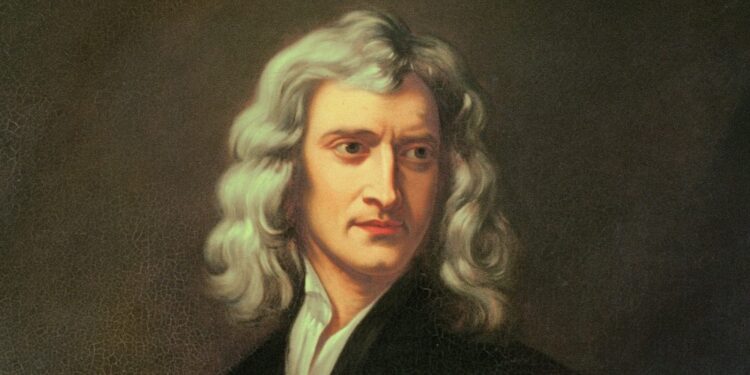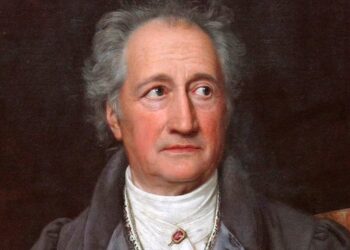Making a list of the smartest people who ever lived may not be a smart thing to do. After all, intelligence can be measured in a variety of different ways. Normally, people would think that being smart refers to the notion involving IQ tests, grades, and the like – however, some bet their money on emotional intelligence. There’s also something to be said about having accomplishments. Being intelligent is not the same as using that intelligence to create something that no one else can, to somehow advance humanity, to be smarter than everyone.
Many smart people do not live up to their potential. It is also true that prejudices and lack of opportunities have surely prevented some brilliant people from reaching their full potential and being recognized. Still, for the sake of argument, we will use all criteria at our disposal to come up with a list of the brightest humans. While IQ testing was developed in the 1900s, there have been studies that estimated the IQs of those geniuses before the 1900s. Anything above 140 is generally considered near genius-level.
Here are the top 20 most intelligent people in history.
1. Johann Wolfgang von Goethe
IQ: 220
Considered by Einstein to be “the last man in the world to know everything”, Goethe was a German polymath who founded the science of human chemistry and developed one of the earliest known theories of evolution. He’s considered one of the greatest figures in Western literature: his 1808 poetic drama “Faust”, is still widely read and studied today.
2. Albert Einstein
IQ: 215
Albert Einstein was a German-born theoretical physicist and philosopher of science. He is best known for his mass-energy equivalence formula E = mc2 which has been called the world’s most famous equation. Einstein articulated the principle of relativity and attempted to disprove quantum theory. His intellectual achievements and originality resulted in “Einstein” becoming synonymous with “genius”.
3. William Shakespeare
IQ: 210
Often referred to as England’s national poet and the “Bard of Avon,” William Shakespeare is widely regarded as the greatest English-speaking writer and dramatist to have ever lived. Born in 1564 in Stratford-Upon-Avon, England, Shakespeare earned a living as an actor and a playwright in London. By 1597, 15 of his plays had been published, including “Richard II”, “Henry VI,” and “Much Ado About Nothing”.
4. Leonardo da Vinci
IQ: 200
A painter, sculptor, architect, musician, mathematician, engineer, inventor, anatomist, geologist, cartographer, botanist, and writer, Leonardo da Vinci was perhaps the most diversely talented person to have ever lived. He’s one of the most celebrated painters in history, revered for his technological innovations such as flying machines, an armoured vehicle, concentrated solar power, and adding machines. Da Vinci was a chronic procrastinator, though, and few of his designs were ever realized during his lifetime.
5. Francis Galton
IQ: 200
Sir Francis Galton was an English polymath best known for his research in eugenics and human intelligence. He studied math at Cambridge and had a keen interest in psychology throughout his life. He’s credited with developing the modern weather map and introducing the use of fingerprints in police work. He was a cousin of Charles Darwin and became interested in eugenics and evolution after the “Origin of Species” was published in 1859.
6. Hugo Grotius
IQ: 200
Hugo Grotius was a 17th century Dutch jurist and scholar best known for his contributions to international law. He was appointed attorney general of the provinces of Holland, Zeeland, and West Friesland in 1607 but was exiled to Paris in 1621 after being accused of treason for taking part in a Dutch political struggle. These violent power struggles in Holland and throughout Europe inspired much of his legal masterpiece “De Jure Belli ac Pacis” (“On the Law of War and Peace”).
7. James Maxwell
IQ: 198
James Maxwell was a Scottish mathematical physicist who is best known for formulating the classical theory of electromagnetic radiation. Maxwell is credited with laying the foundations for quantum theory and was was revered by many, including Einstein. When Einstein was asked if he had stood on the shoulders of Newton, he replied: “No, I stand on Maxwell’s shoulders.”
8. Rudolf Clausius
IQ: 198
Rudolf Clausius was a German physicist and mathematician best known for formulating the second law of thermodynamics. Clausius made thermodynamics a science, coined the term “entropy”, and developed the kinetic theory of gases. He was also one of the first scientists to suggest that molecules are made up of continually interchanging atoms, which later provided the basis for the theory of electrolytic dissociation (the breakdown of molecules into charged atoms or ions).
9. Isaac Newton
IQ: 195
Most famous for his law of gravitation, English physicist and mathematician Sir Isaac Newton was instrumental in the scientific revolution of the 17th century. He wrote “Philosophiae Naturalis Principia Mathematica”, widely believed to be the most influential book on physics and possibly all of science. Although some of his assumptions were eventually proven wrong, Newton’s universal principles of gravity had no parallels in science at the time.
10. Nikola Tesla
IQ: 195
Born during a lightning storm in 1856, Nikola Tesla went on to invent the Tesla coil and alternating current machinery. He had an intense rivalry with Thomas Edison throughout his life, and many of his projects were funded by JPMorgan, who would later become his business partner. In 1900, Morgan invested $150,000 in Tesla’s Wardenclyffe Tower – a transatlantic wireless communication system that Tesla never completed.
11. Voltaire
IQ: 195
Francois Marie Arouet, better known by his pen name Voltaire, was born in Paris in 1694. He was one of France’s greatest writers and philosophers, known for his satirical genius and biting criticism of his country’s noblemen. Throughout his life, Voltaire vigorously defended the distinction between natural science and philosophy. Many of his critical writings were directed against established philosophers such as Leibniz, Malebranche, and Descartes.
12. Gottfried Leibniz
IQ: 194
Gottfried Leibniz was a German philosopher and logician who is perhaps best well known for inventing differential and integral calculus. In 1676, Leibniz founded a new formulation of the laws of motion known as dynamics, substituting kinetic energy for the conservation of movement. His contributed extensively to the philosophy of language with his work on necessary and contingent truths, possible worlds, and the principle of sufficient reason.
13. Thomas Young
IQ: 193
Thomas Young was an English physician and physicist whose contributions to the fields of vision, light, physiology, and language led to many important discoveries in optics and human anatomy. He was also an Egyptologist who helped decipher the Rosetta Stone. One of his most important discoveries was that the lens of the human eye changes shape to focus on objects at different distances, which ultimately led him to determine the cause of astigmatism. He was also the first to postulate how the eye perceives colors.
14. Ettore Majorana
IQ: 192
Ettore Majorana was an Italian theoretical physicist who studied neutrino masses, electrically neutral subatomic particles that are created in nuclear reactions. He became a full professor of theoretical physics at the University of Naples one year before his mysterious disappearance during a boat trip from Palermo to Naples. His body was never found. The Majorana equation and Majorana fermions are named after him, and in 2006, the Majorana Prize in theoretical physics was established in his memory.
15. Marie Curie
IQ: 190
Marie Curie was a Polish-born physicist and chemist. She is perhaps best known for her research into radioactivity (a term she coined), which was instrumental in the development of x-rays in surgery. Curie was the first woman to win the Nobel Prize, the first person to win it twice – in physics and then in chemistry – and the first woman to teach at the Sorbonne.
16. Carl Gauss
IQ: 190
Considered to be the greatest German mathematician of the 19th century, Carl Gauss was a child prodigy who went on to contribute extensively to the fields of number theory, algebra, statistics, and analysis. His writings were particularly influential in the study of electromagnetism. He refused to publish anything until it was absolutely perfect.
17. Galileo Galilei
IQ: 190
Galileo was an Italian natural philosopher, astronomer, and mathematician born in 1564 who developed such scientific concepts as circular inertia and the law of falling bodies. His discoveries with the Telescope undermined Aristotelian cosmology, particularly his findings that Venus goes through phases just as the Moon does and that Jupiter has four moons orbiting around it.
18. Leonhard Euler
IQ: 190
Leonhard Euler was a Swiss mathematician and physicist. Born in 1707 and educated in Basel, Euler spent most of his career in St. Petersburg and Berlin. Euler was one of the founders of pure mathematics and further developed the study of integral calculus. He authored “Introductio in Analysin Infinitorum,” and his complete works fill about 90 volumes. He had a legendary memory and could recite the entire “Aeneid” word-for-word.
19. John Stuart Mill
IQ: 190
John Stuart Mill was a 19th century political philosopher and member of the British parliament. As a student of philosopher Jeremy Bentham, Mill championed utilitarianism and criticized unlimited state control. His 1859 essay “On Liberty”, in which he argues that liberty is a fundamental human right, sparked controversy in its unequivocal endorsement of individuality and freedom of speech.
20. Nicolaus Copernicus
IQ: 180
Nicolaus Copernicus was a Polish mathematician and astronomer whose discovery of the heliocentric model of the universe – in which the sun and not the earth is the center of our solar system – revolutionized the study of the cosmos. The publication of Copernicus’ model in his book “De revolutionibus orbium coelestium” (On the Revolutions of the Celestial Spheres), just before his death in 1543, was a major event in the history of science, triggering the Copernican Revolution and making a pioneering contribution to the Scientific Revolution.


































































































































































































